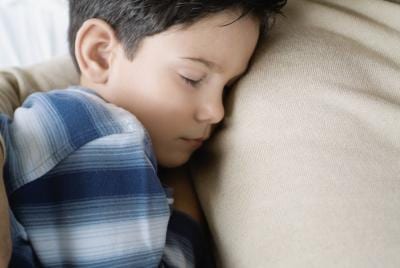Night terrors, a rare sleep disorder seen in children, are much more than ordinary nightmares. During a night terror, a parent is not usually able to calm the child. In fact, it is difficult to awaken a child who is suffering from night terrors. While night terrors are frightening to the parents, they do not pose a health threat to the child. Most children do not even remember the episode when they wake up the next morning.
Statistics
Between 1 and 6 percent of children between the ages of 3 and 12 suffer from night terrors, according to WebMD. Young children experience night terrors more frequently, although most gradually outgrow the condition by the time they hit puberty. Children of all races and both genders suffer equally from night terrors.
Function
Vaccines contain a tiny amount of the disease they are meant to protect against, which is then injected into the body. The microorganisms that cause the disease are either weakened or killed to make sure that the body can easily fight them. The immune system responds by fighting the infection, creating a memory of the disease. This memory is what prevents a vaccinated child from ever contracting the disease again. If a child is exposed to the disease in the future, her body will be able to fight and overcome it quickly.
Symptoms
Children in the throes of a night terror may scream and thrash around. They may appear confused and usually do not respond to stimuli. Most experience a rapid heartbeat, sweating, dilated pupils and increased breathing. Some children even sleepwalk. The average night terror episode lasts only for a minute or two, after which the child will suddenly fall back asleep. In rare cases, an episode may last up to 30 minutes.
Cause
Night terrors occur when the central nervous system is over-stimulated, according to the St. Louis Today website. This system, which controls brain activity and regulates sleep, is still maturing in young children. In addition, some scientists think there is a genetic link.
Prevention/Solution
There is no cure for night terrors, but steps can be taken to try to reduce the number of episodes. Night terrors are more common when a child is stressed, lacking enough sleep or is sick. Anything that causes stress, such as moving to a new home or starting a new school, can trigger an episode. Children who are taking a new medication may also suffer from night terrors, especially if the medication affects the central nervous system. If your child suffers from night terrors, try to reduce the stress in her life. Stick with a bedtime routine she can count on, and talk with her about any anxieties she might be having. Finally, make sure she is getting plenty of rest, even if that means taking a nap during the day.





